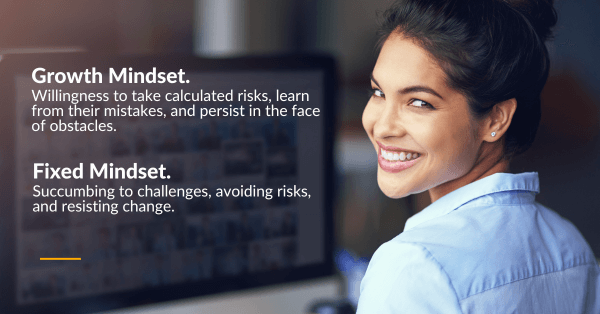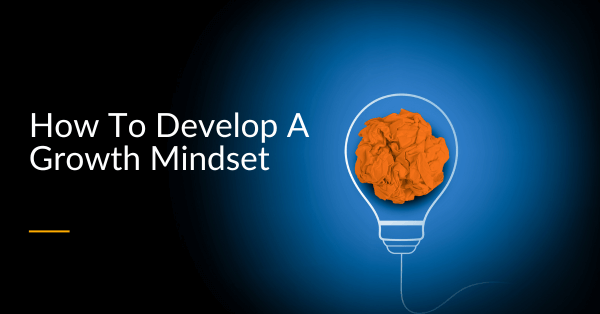. The success mindset. For many, talent is a great gift. This gift is something you have from day one and is not something you can grow or improve on. The best example of talent is physical talent like a fast runner or a good singer. But what about non-physical talent or success mindset? How do you measure or improve your success mindset? This blog will look at what a success mindset is and why it matters more than talent.
What is a Fixed Mindset?
According to mindtools, a fixed mindset is the belief that your intelligence, talents, and other abilities are set in stone. You believe that you’re born with a particular set of skills and that you can’t change them.
If you have a fixed mindset, you will likely fear that you may not be smart or talented enough to achieve your goals. You may hold yourself back by engaging only in activities that you know you can do well.
What is a Growth Mindset?
According to understood, a growth mindset describes a way of viewing challenges and setbacks. People who have a growth mindset believe that even if they struggle with certain skills, their abilities aren’t set in stone. They think that with work, their skills can improve over time.
What is the difference between these two?

To understand the power of mindset, the initial step involves acknowledging the existence of two primary types of mindsets: fixed and growth.
Numerous studies have demonstrated that individuals with a growth mindset are more inclined to attain success. They are willing to take calculated risks, learn from their mistakes, and persist in the face of obstacles. Their resilience and adaptability make them well-suited for navigating the fast-paced and unpredictable nature of today’s world. In contrast, those with a fixed mindset tend to succumb to challenges, avoid risks, and resist change.
Now, how can you determine whether you possess a fixed or growth mindset? Do you frequently catch yourself uttering phrases such as, “I’m just not good at that” or “I’ll never be capable of doing that”? If so, it’s likely that you possess a fixed mindset. On the other hand, if you approach challenges with curiosity and an eagerness to learn, you are more likely to possess a growth mindset.
How Mindset Affects Success
Now that we understand the difference between a fixed and growth mindset, let’s explore how mindset affects success.
Research has consistently demonstrated that individuals embracing a growth mindset exhibit a higher propensity to attain their objectives, be it in their professional endeavors, entrepreneurial ventures, or personal development journeys. A key contributing factor to their success stems from their proactive approach toward goal achievement. They see challenges as opportunities for growth and are willing to put in the effort to overcome obstacles.
Another way that mindset affects success is by influencing how we respond to failure. People who have a growth mindset see failure as a learning opportunity and are more likely to bounce back from setbacks. They view failure as a temporary setback rather than a permanent condition and are more likely to try again and find new ways to succeed.
In contrast, people who have a fixed mindset may be more likely to give up in the face of failure. They may see failure as a reflection of their abilities and feel discouraged or embarrassed by their mistakes. This can lead to a lack of motivation and a fear of taking risks, which can ultimately hinder their success.
Examples of Successful People Who Have A Growth Mindset

Many of the world’s most accomplished individuals attribute their remarkable achievements not solely to their inherent abilities, but rather to their mindset.
Take Oprah Winfrey for example. A prominent media mogul, who consistently emphasizes the significance of cultivating a growth mindset. Winfrey attributes her immense success to her readiness to embrace risks, learn from her mistakes, and persevere in the face of adversity.
Similarly, Michael Jordan, widely revered as one of the greatest basketball players in history, exemplifies the impact of a growth mindset. Despite facing rejection when cut from his high school basketball team, Jordan tenaciously dedicated himself to honing his skills. His unwavering belief in the potential for personal development and his willingness to invest substantial effort was instrumental in his extraordinary achievements.
J.K. Rowling, the renowned author of the beloved Harry Potter series, also epitomizes the power of a growth mindset. Despite encountering numerous rejections from publishers before her first book was accepted, Rowling steadfastly maintained faith in her abilities and her literary creations.
Through unwavering resolve and remarkable resilience, she transcended formidable challenges and emerged as one of the most accomplished authors in history.
Developing A Growth Mindset
If you currently possess a fixed mindset, there’s no need to fret – you can actively cultivate a growth mindset through practice and commitment. Consider the following suggestions for developing a growth mindset:

- Embrace challenges: Rather than shying away from challenges, actively pursue them as avenues for personal growth and self-improvement.
- Embrace the value of mistakes: Recognize that mistakes are opportunities for learning and development. Embrace them as valuable stepping stones to enhance your skills and expand your knowledge.
- Persevere in the face of obstacles: Refuse to succumb to discouragement when confronted with obstacles. Instead, embrace them as chances to bolster your abilities and build resilience. Adopt a tenacious attitude that propels you forward.
- Foster a love for learning: Approach new challenges with an inherent curiosity and an eagerness to acquire new knowledge. Cultivate a genuine passion for lifelong learning and recognize that every experience has the potential to broaden your horizons.
- Surround yourself with positive influences: Seek out individuals who serve as mentors, coaches, and supportive friends. Surrounding yourself with positive influences can fuel your growth and provide the necessary encouragement to take risks and explore new possibilities.
By implementing these strategies, you can gradually shift your mindset from a fixed perspective to a growth-oriented one, unlocking a world of possibilities and enhancing your potential for success.
How positive thinking can affect you?
In addition to developing a growth mindset, positive thinking and visualization can also play a powerful role in achieving success. Positive thinking involves focusing on the positive aspects of a situation rather than the negative. This can help you stay motivated and resilient in the face of challenges.
Visualization involves imagining yourself achieving your goals and experiencing the emotions associated with that success. Visualization can help you stay focused on your goals and build confidence in your abilities. Research has shown that visualization can be a powerful tool for improving performance in a wide range of areas, from sports to business.
Maintaining a growth mindset
Maintaining a growth mindset requires ongoing effort and dedication. Here are some tips for staying committed to your growth mindset:
- Practice self-reflection: Regularly reflect on your thoughts, beliefs, and behaviors to identify areas where you can improve.
- Surround yourself with positive influences: Seek out mentors, coaches, and friends who support your growth and encourage you to take risks.
- Stay focused on your goals: Keep your goals in mind and stay focused on the actions that will help you achieve them.
- Be intentional with your thoughts and words: Use positive affirmations and self-talk to reinforce your growth mindset.
- Celebrate your successes: Take time to acknowledge and celebrate your achievements, no matter how small.
Mindset vs. Talent: Which is More Important?

The question of whether mindset or talent holds greater importance is a subject of considerable interest. While talent undoubtedly contributes to achieving success, research indicates that mindset may wield even greater influence. Individuals with a growth mindset are more inclined to take decisive action, glean valuable lessons from their mistakes, and persevere in the face of adversity – all critical components for attaining success.
It is essential to recognize that mindset and talent are not mutually exclusive; they can complement and enhance each other. In fact, adopting a growth mindset can aid in the development and optimization of one’s talents and abilities. By embracing challenges, extracting valuable insights from setbacks, and exhibiting unwavering determination, you can cultivate the skills and knowledge required to excel in any domain of life.
Ultimately, while talent may provide an initial advantage, it is the mindset that determines the extent to which that talent is realized. By nurturing a growth mindset, you can unlock your full potential and pave the way for extraordinary achievements
It’s time for you to take charge of your own success—we’re here to make sure it happens!
Now, I’d love to hear from you.
I want to know about your journey. Let me know in the comments below and as always feel free to contact me!






0 Comments